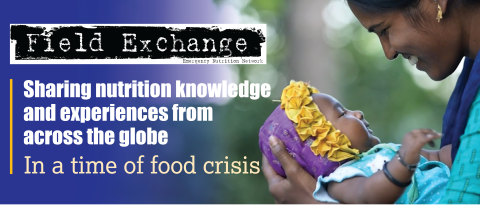Human milk banking: Attitudes and practices in rural Türkiye
This is a summary of the following article: Akpinar C, Mandiracioglu A, Ozvurmaz S et al (2022) Attitudes towards human milk banking among native Turkish and refugee women residing in a rural region of Turkey: A mixed-methods approach. International Breastfeeding Journal, 17, 74. https://internationalbreastfeedingjournal.biomedcentral.com/articles/10.1186/s13006-022-00516-2
Breastmilk is the ideal food for infants, providing all the energy and nutrients required for the first six months of life and providing up to half of a child’s nutritional needs through to two years of age. To encourage a supportive breastfeeding environment, particularly in areas where breastfeeding practices are low and/or compromised, human milk banks offer an essential service.
Human milk banks are facilities that collect breastmilk donations from mothers who produce more than their babies need, and which pasteurise and appropriately store this donor milk for future use. When breastfeeding is not possible, the World Health Organization recommends the use of donated breastmilk as the best feeding option.1
Despite the need, there is currently no human milk bank in Türkiye. To determine the acceptability of establishing such facilities, this cross-sectional study investigated the opinions and attitudes surrounding donor milk banks in rural Türkiye. Qualitative data were collected via comprehensive interviews with 33 women and then thematically analysed. Quantitative data were obtained from a questionnaire issued to 271 women, and a logistical regression was performed to analyse this aspect. All participating women were over 18 years of age and had given birth within the last five years.
It is important to consider the context of this study, which was completed in a rural area with significant internal and external migration, featuring a diverse array of refugee (often from Syria, but also Iraq and Afghanistan) and migrant (often from the Balkans) groups in addition to Turkish nationals. Purposive sampling – where participants are selected based on their study characteristics, rather than at random – was used, resulting in 15 of 33 women in the qualitative study being refugees. Although this methodology is appropriate for investigating the opinions of a diverse group, as it allows inferences to be made for a broader range of people, it is not representative of the population in this region of Türkiye or of the country as a whole. The sample was also relatively small, so the findings should act as a guide to the opinions of the study population rather than indicating the acceptability of human milk banks across Türkiye.
Just over half of the women in the study (57.9%) were willing to donate breastmilk, yet only 27.7% were willing to use donor milk for their babies. Religious beliefs, alongside fear of infectious disease and distrust of donors, were cited as major barriers to donor milk use by both native Turkish women and refugees, with human milk banking remaining a contentious issue among religious groups in the country (Ozdemir et al, 2015). The odds of having a positive attitude towards donor milk banks was four times higher in homemaker (non-working) women, almost five times higher in women with three or more children and six times higher in women with a positive attitude towards wet-nursing. Religious factors played a positive, as well as a negative, role in attitudes.
These barriers and facilitators are important to consider when implementing human milk banks in this region, or in regions with comparable cultural and/or religious practices.
References
Ozdemir R, Ak M, Ozer A et al (2015) Human milk banking and milk kinship: Perspectives of religious officers in a Muslim country. Journal of Perinatology, 35, 1, 137–141. https://www.nature.com/articles/jp2014177


